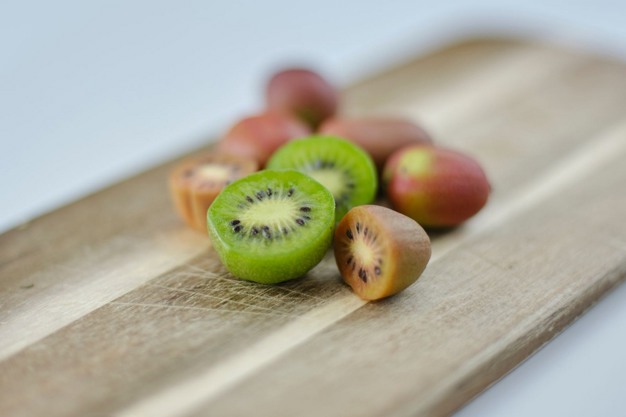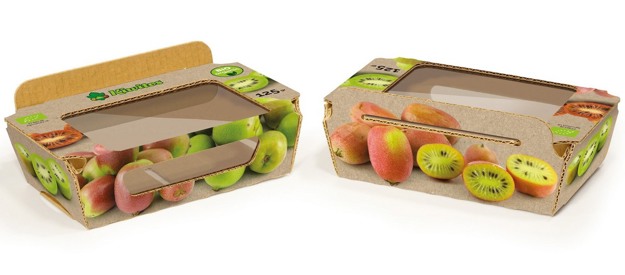There's been lower production of Portuguese kiwiberries due to unstable weather conditions, says Filipe Gomes, export manager for Portuguese fresh produce exporter Twinkle Green: "This year, the kiwiberry cultivation period in Portugal was difficult, due to the constant instability of the weather, which was felt until very close to harvest. We've had many periods of rain, followed by very hot days."
There's been a wide variety of harsh weather conditions impacting the Portuguese kiwiberry season, including some sunburn due to high temperatures in July, Gomes explains. "The weather had a major impact on this year's campaign, starting with the very mild winter. For some of our varieties, the chilling requirements only reached 80% and others only 60%. Then, during the flowering period, we had rainy and windy weather, which caused poor pollination, around 40% of the flowers were aborted. In July, we had three very hot days where temperatures reached 39 degrees Celsius, during which we lost some of the production due to sunburn. Now that we are in the final stretch of the harvest, I can say that the weather has impacted the production of kiwiberries, as we have around 35% lower production compared to last year."

As supermarkets are starting to sell the kiwiberries, Gomes expects overall demand for the product to increase even further: "The demand for kiwiberries increases a little more every year, that's a fact. This year, there was a greater increase due to the lower overall production. I believe that the increase in demand will continue to grow and probably at an even greater pace, because we see some supermarkets starting to sell kiwiberries. As such, once one retailer starts and is successful, the other competitors will want to follow suit. Prices have remained stable year after year, it's not yet a fruit where there is much price fluctuation due to excess production or low demand."
According to Gomes, not everyone is treating the kiwiberry the right way, as it should be treated more like a berry with very unique specifics. "The biggest challenge is always making kiwiberries known to both consumers and traders. Many people want it, but only know it vaguely. As a result, it's always a challenge to inform our customers that this fruit should not be treated like a normal kiwi, but more so like a berry, with different characteristics. For example, kiwiberries are the only berries that are climatic, this means that they will ripen naturally after harvest, without losing their taste or organoleptic properties. To be consumed it has to be soft, and the softer it is, the better its flavor will be, which is a fact that many people seem to ignore."

Despite the challenges, Gomes feels Twinkle Green is in a good position, thanks to their offering: "This year, our campaign started at the beginning of August and ends this week. However, due to lower production, the campaign ends two weeks earlier than normal. We've had all of our production reserved for two weeks now, thanks to the quality and variability of our kiwi berries. We also take advantage of our offer of different packaging, many of them ecological and plastic-free, as well as our organic production method we have managed to maintain good relations with our customers," he concludes.
For more information:
Filipe Gomes
Twinkle Green / Kiwitos
Tel: +351933634322 / +33616850154
Email: info@kiwitos.pt
www.kiwitos.pt
